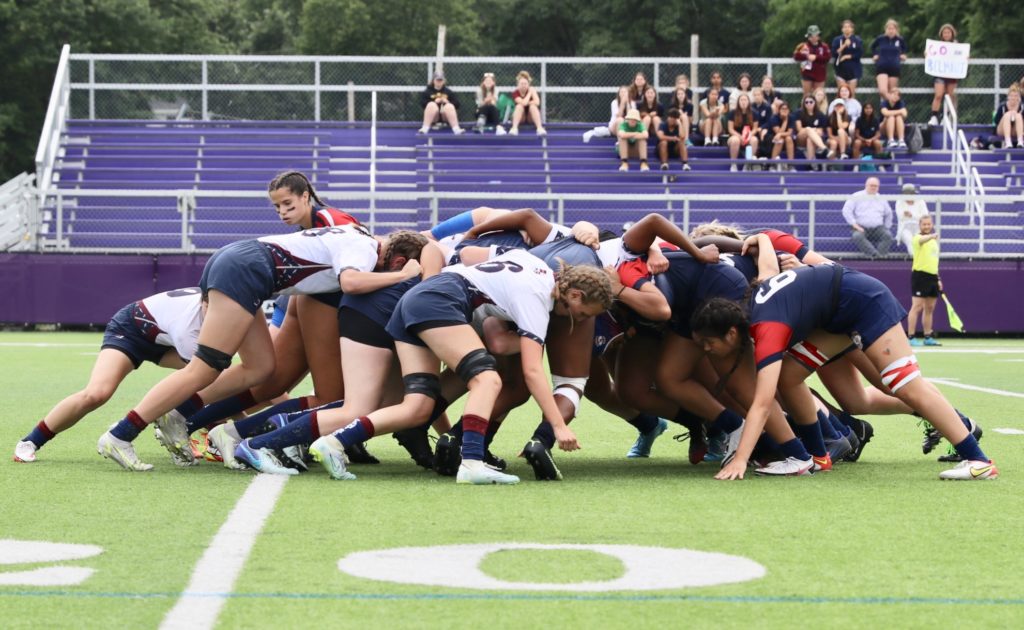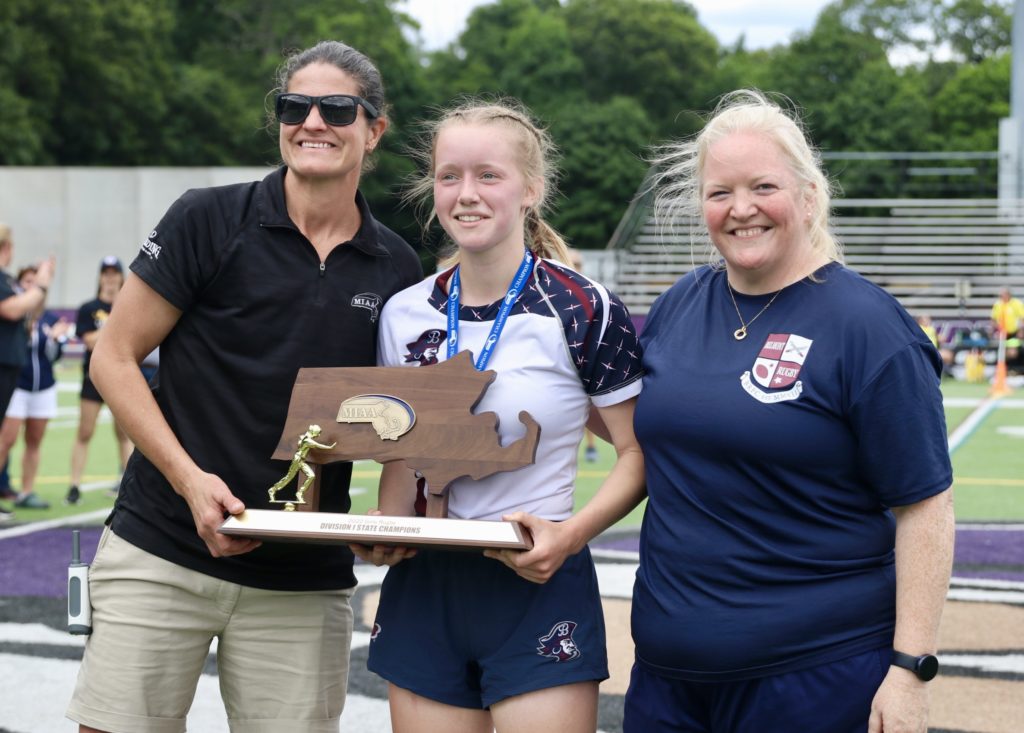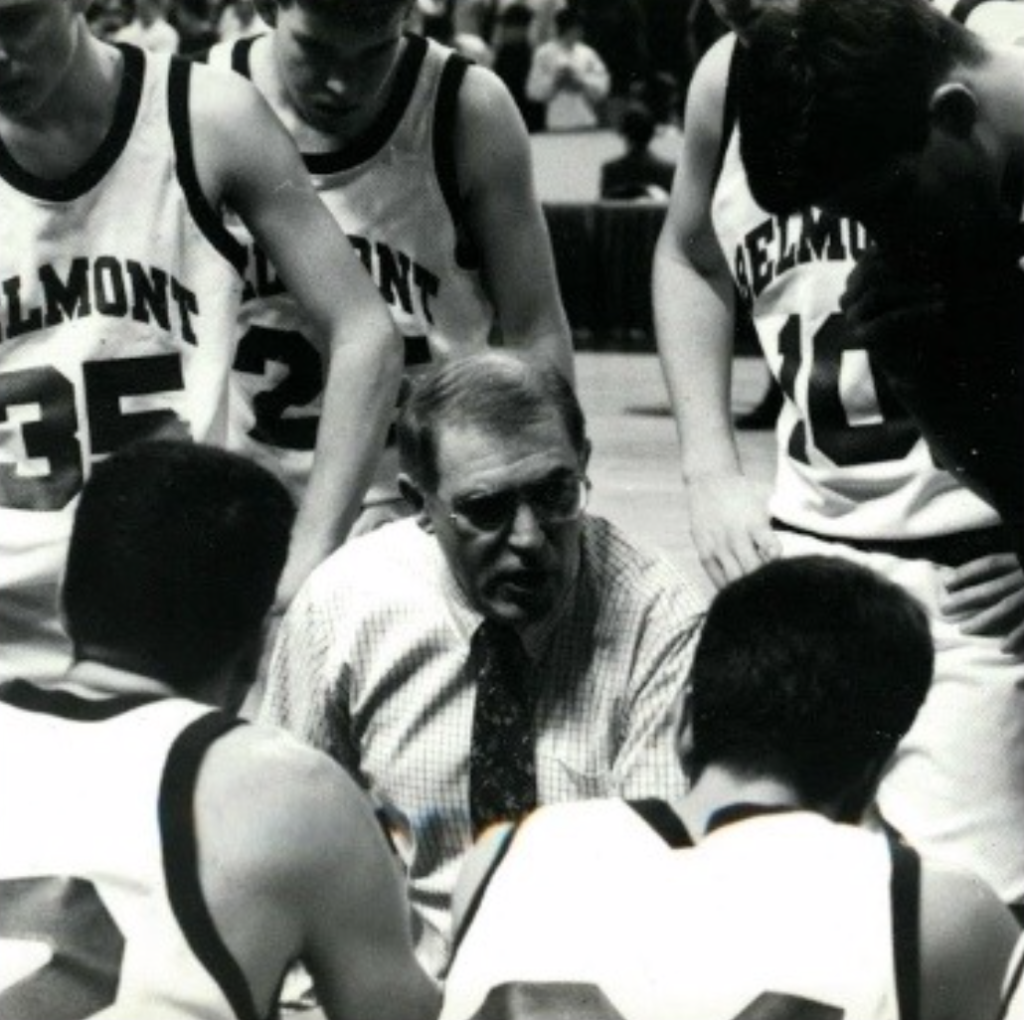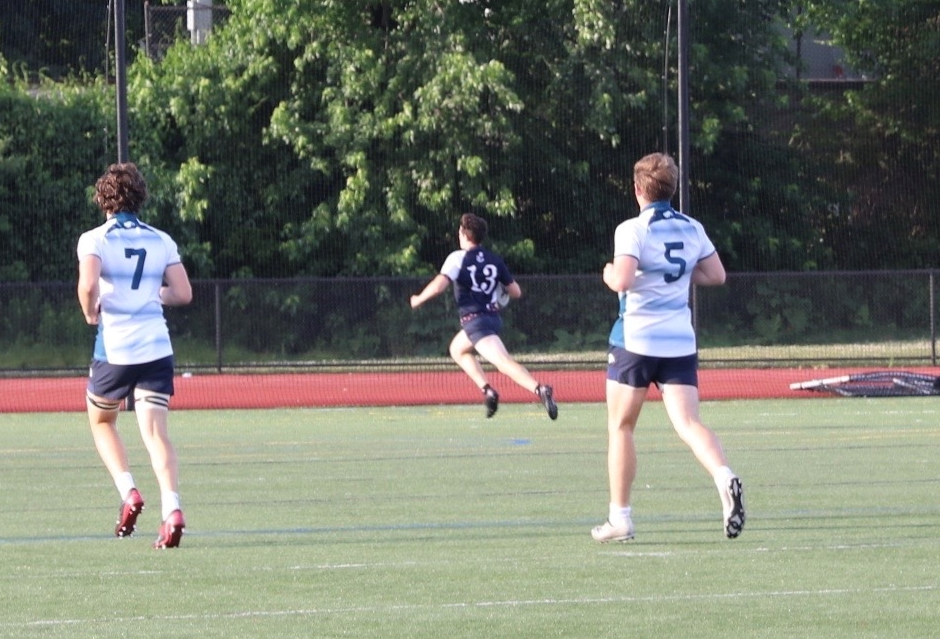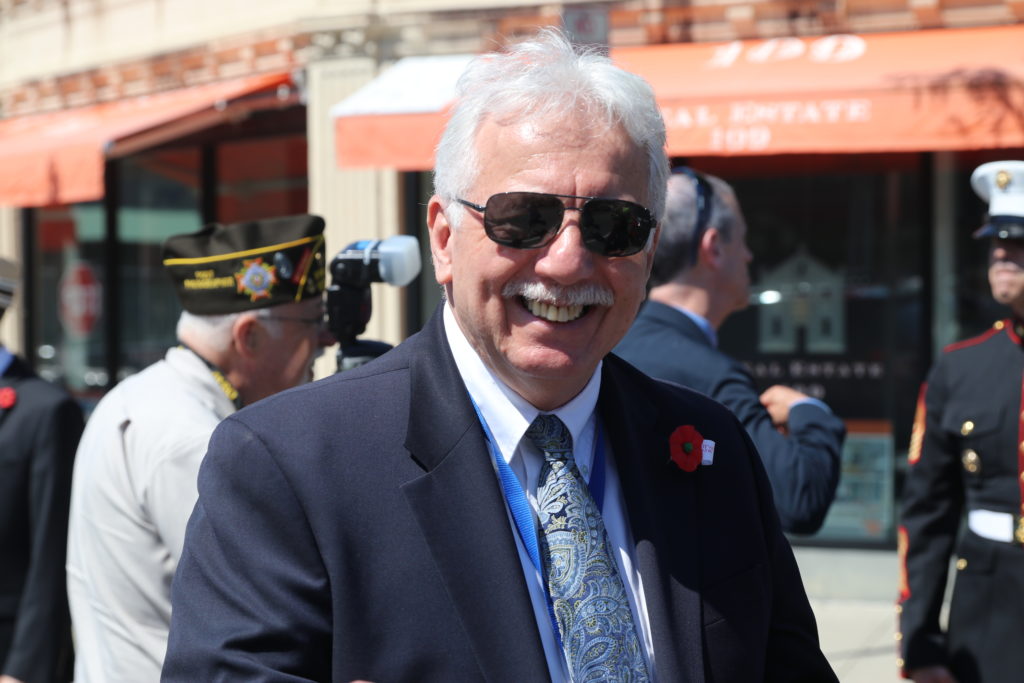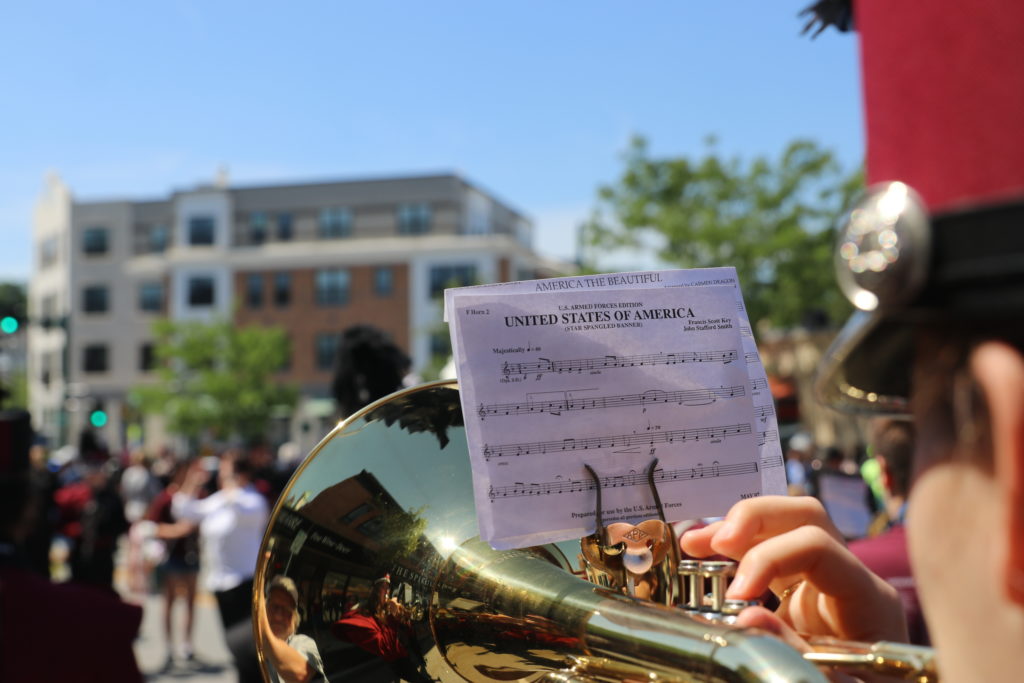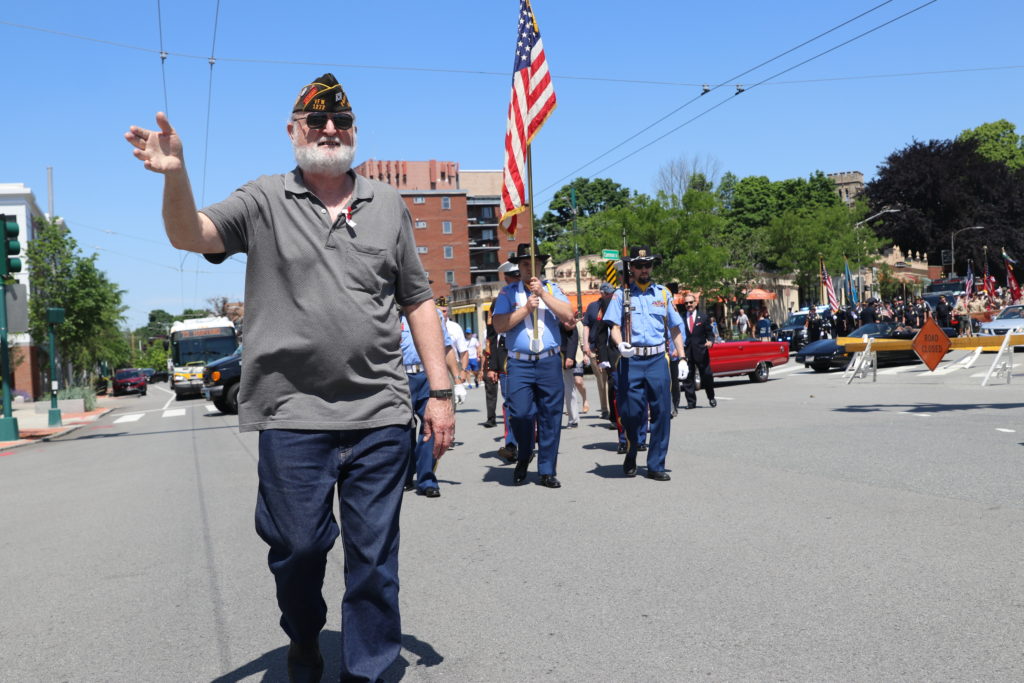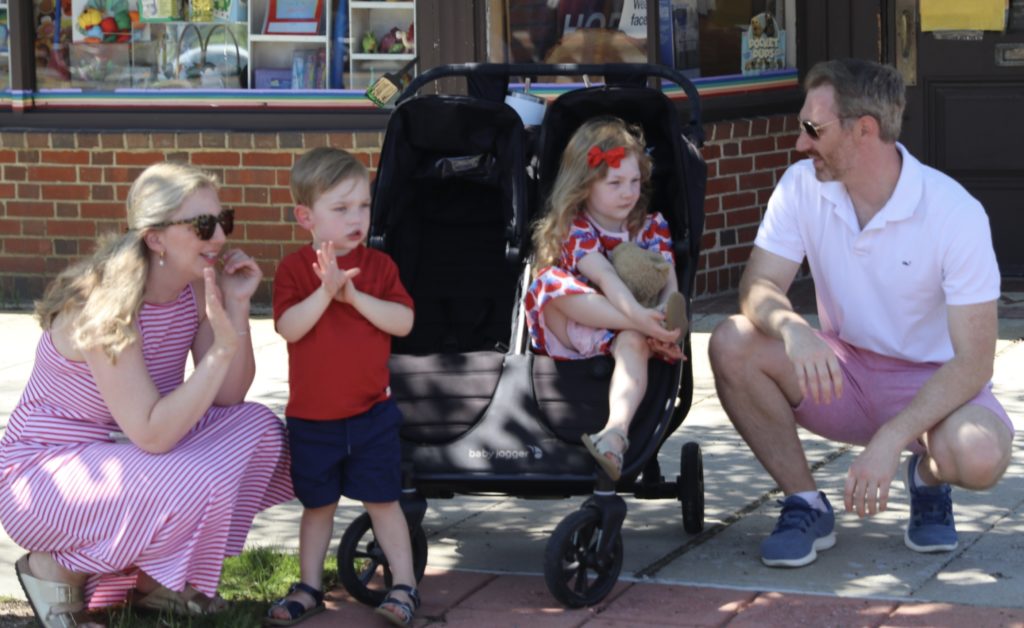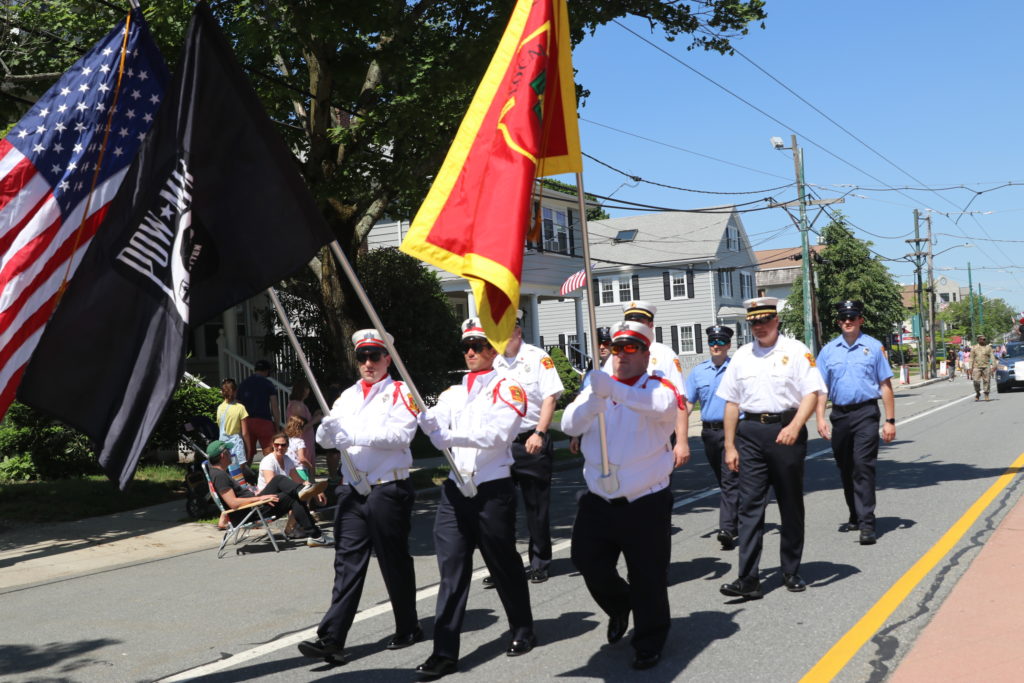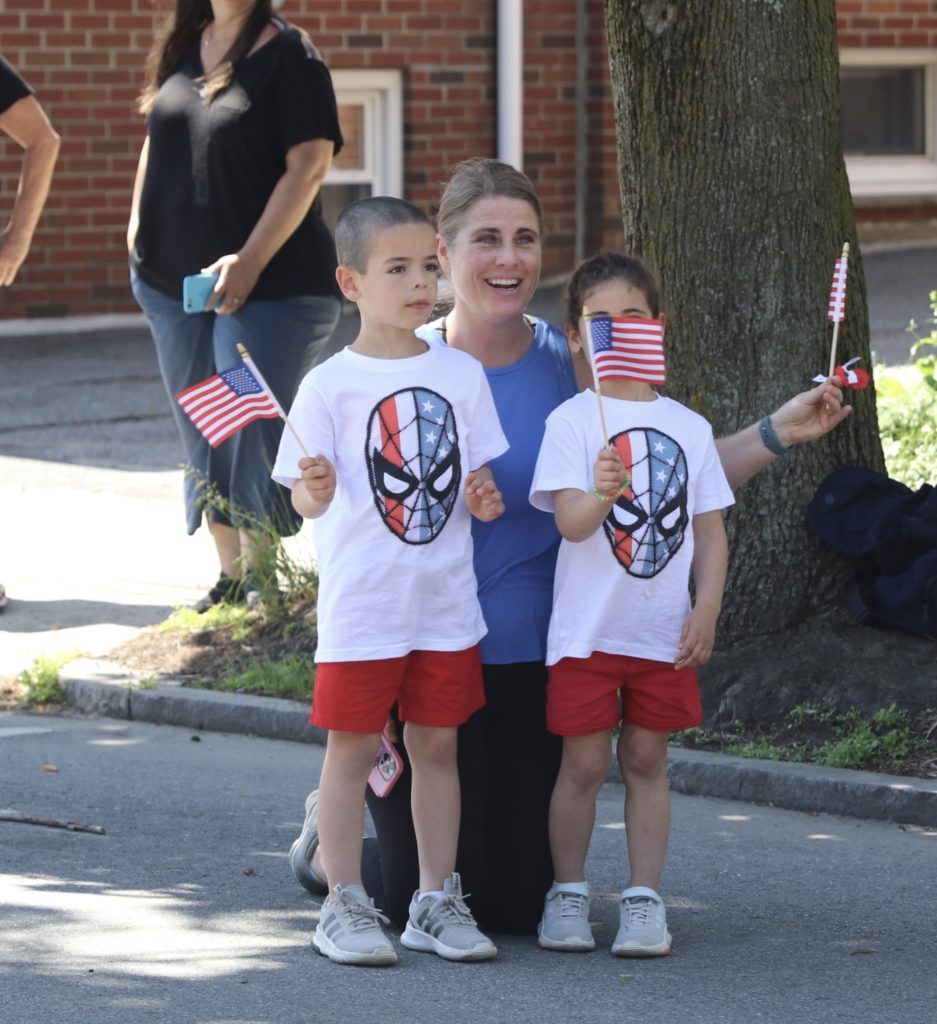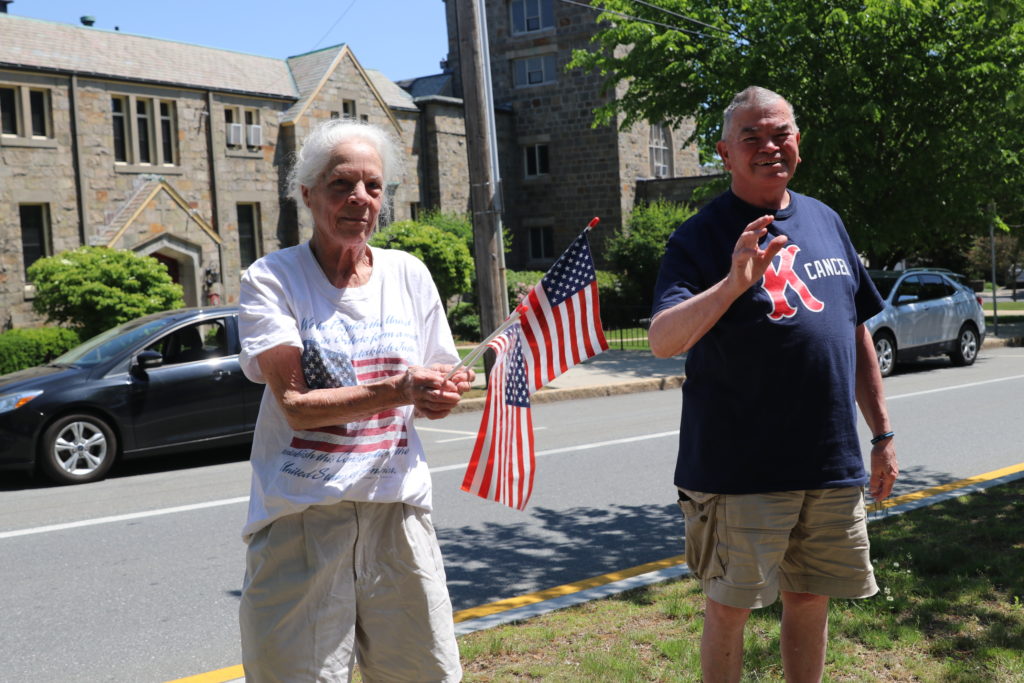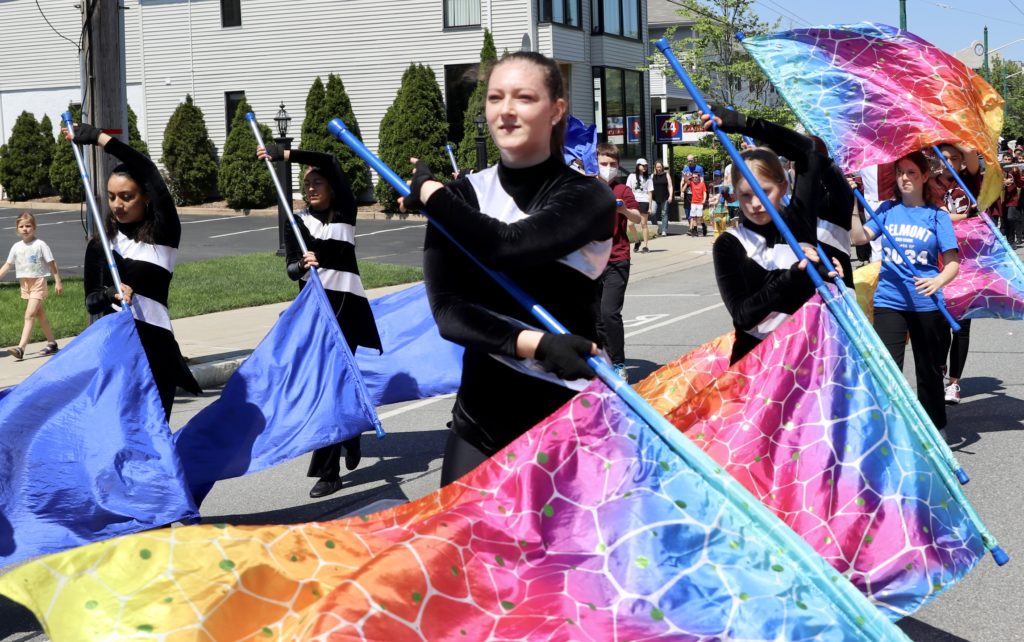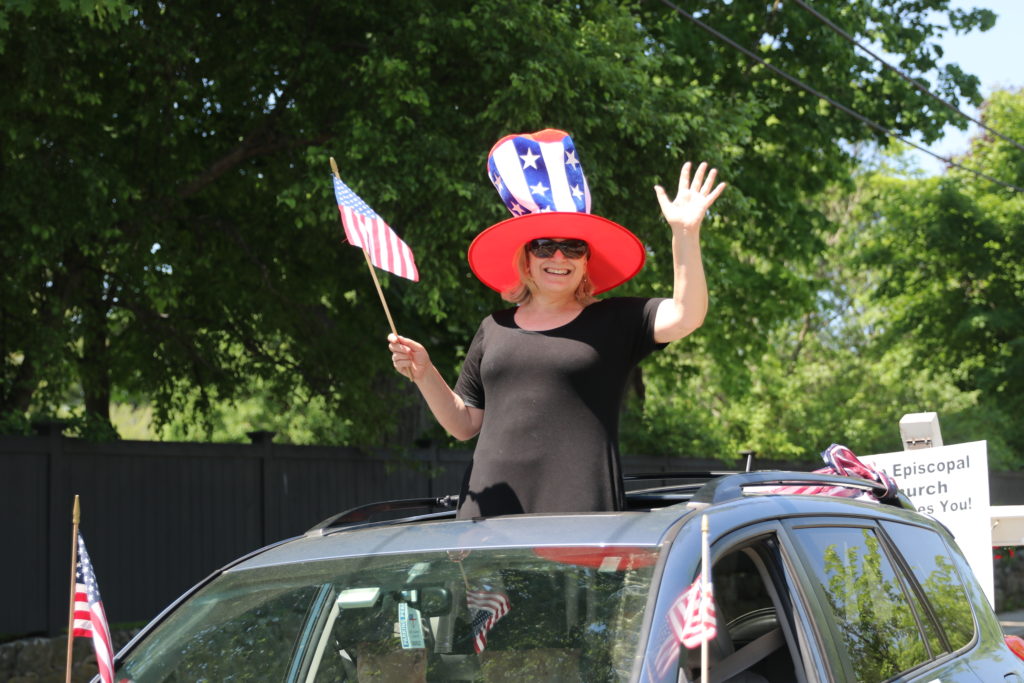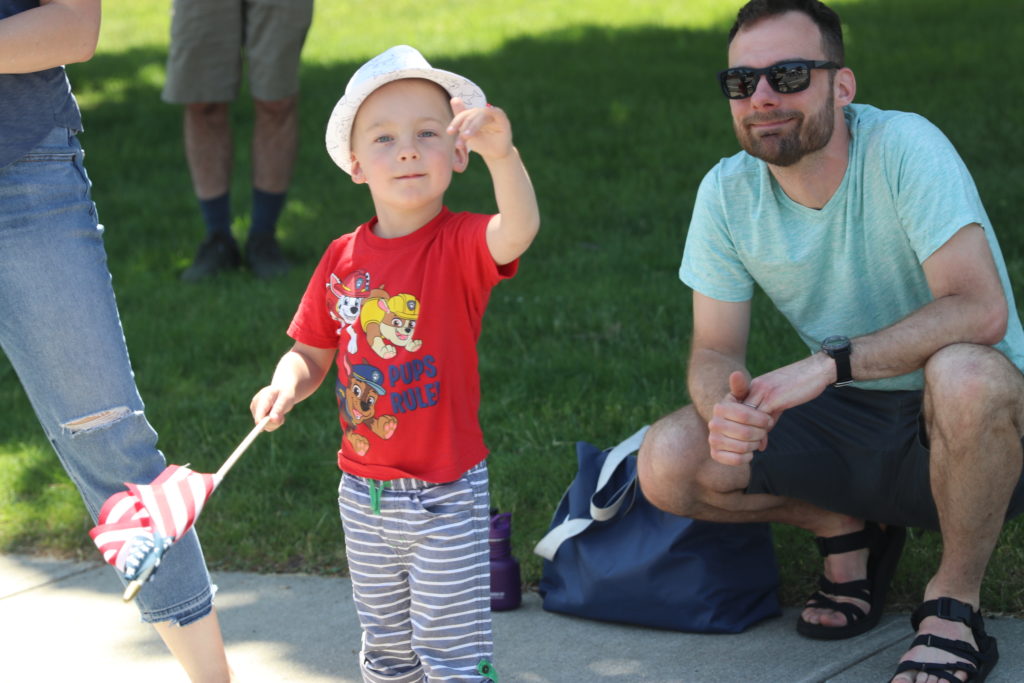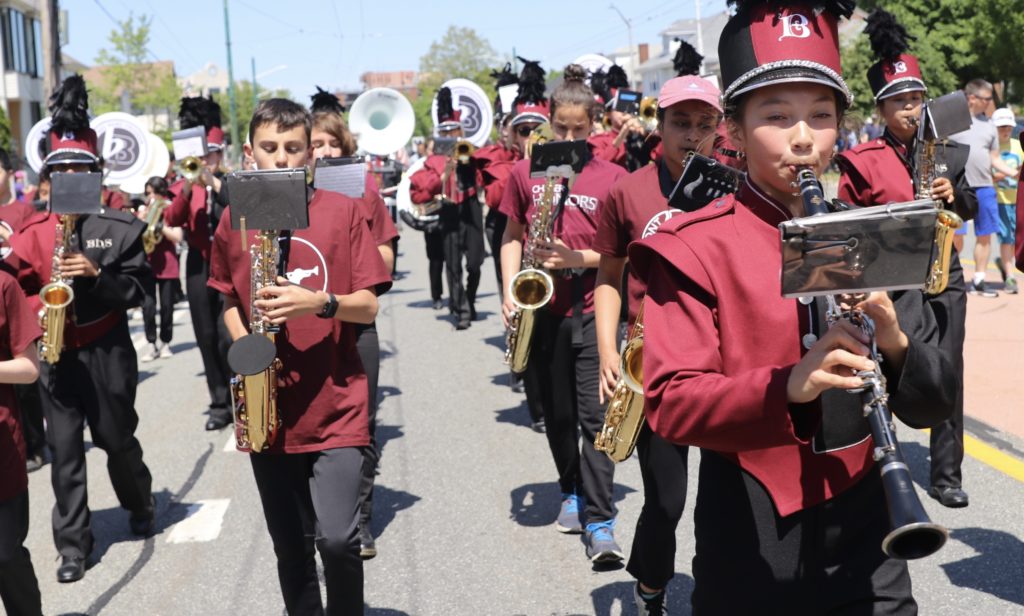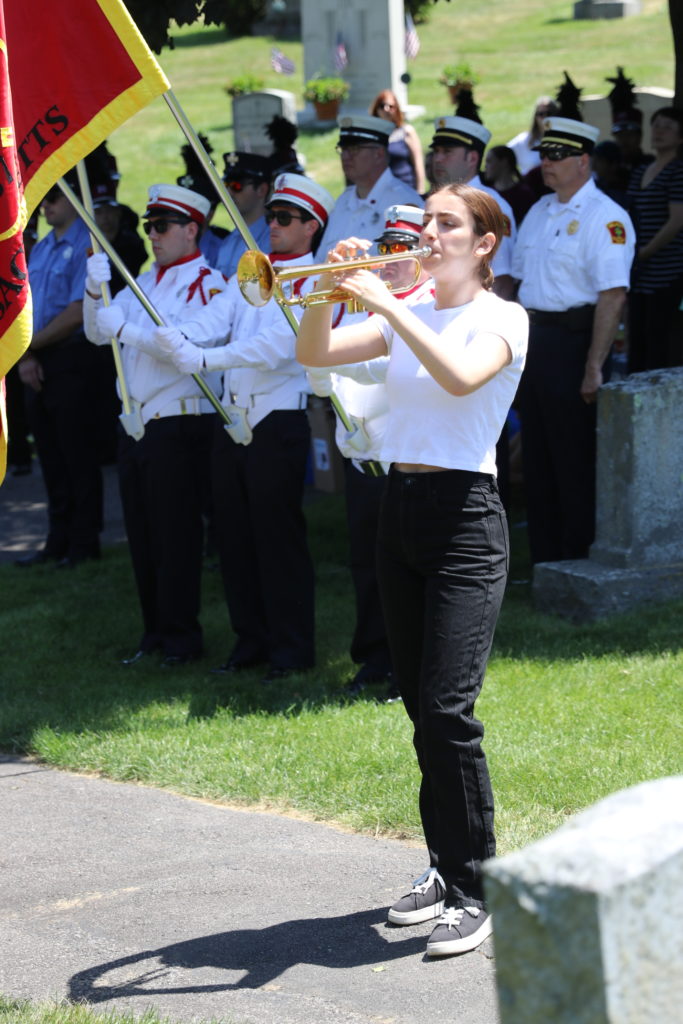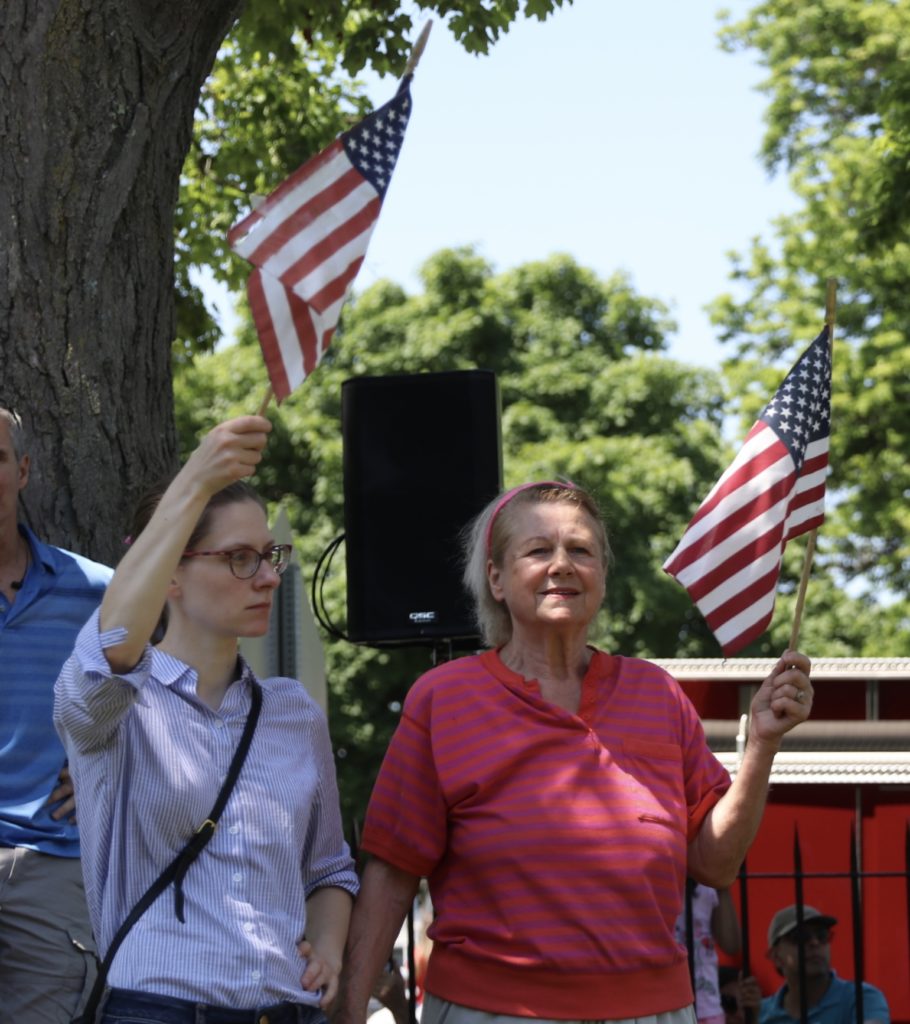Photo: Belmont High School Senior Capt. Evie Hamer holds aloft the MIAA state championship trophy after Belmont defeated Lincoln-Sudbury, 34-0, to win its fourth consecutive Division 1 rugby state title
After a first-half where it was forced to rely on its underrated defense by a gutsy Lincoln-Sudbury Regional team, Belmont High School Girls’ Rugby flipped the switch on its dominating attack scoring five tries in the second half as the Marauders defeated the Warriors, 34-0, to take home the program’s fourth consecutive MIAA Division 1 state championship before a near full house at Curry College. Saturday, June 18.
“Man, every time it’s really hard,” said Kate McCabe, Belmont’s head coach since the program began in 2015. Belmont has won each of the four Division 1 tournaments contested since the MIAA sanctioned the sport in 2017. (The 2020 season was cancelled due to Covid while the girls’ played Rugby 7s in a non-title post-season.)
Having taken on Lincoln-Sudbury for the third straight title game, McCabe said every meeting with the Warriors “is a battle and whatever the first game of the season [a Belmont win, 39-26, in April] is doesn’t guarantee what the last game of the season is.”
The match was a tale of two halves, with second-seed Lincoln-Sudbury (5-3) playing a possession game from the kickoff, holding onto the ball for nine of the first 10 minutes while putting Belmont (7-0) under pressure by employing a wide-open game from the back. L-S came close to scoring midway through the half when the Warriors appeared to have crossed the try line but lacked control of the ball.
“We weren’t expecting them to be coming this hard,” said Belmont’s Number 8 Val Detheux. “They’ve been more wide offense and I think we got surprised by that.”


That first half Belmont demonstrated its tackling ability which is the underrated part of its game. An example occurred with the Warriors driving five meters to try, standout tackling first by open-side flanker Alex Townsend then inside center Helen Feldhaus sent L-S ball carriers back 10 meters stalling the push.
“We had amazing tacking from our captain, [senior fly-back] Evie Hamer, who shouldn’t have had to make those many tackles. She was phenomenal,” said McCabe, who also gave kudos to all the backs for shutting down the tightly organized L-S attack out wide.
In the waning moments of the half, Belmont finally took advantage of a sustained possession finding room on its right side to come within a few meters of the try. Despite being knocked off the play earlier, Detheux reentered the pile of players and squirmed the ball over the line for the game’s first score with three minutes remaining. A missed conversion allowed Belmont to walk off the pitch with a precarious 5-0 lead.
The halftime break provided the opportunity for Belmont to regroup and reset its offensive.
“We were able to to kind of settle down, play our pattern, really work what we know and then some of that space finally opened up,” said McCabe, who pointed to Marauders forwards especially the two locks, Lulu Conroy and Giulia Vecchi, who ran up the gut of the Warrior line luring the L-S forwards into the middle of the field, allowing more space for Belmont’s backs to “strike out wide.”
The Marauders’ quickly brought the ball down to the Warrior end and five minutes into the half, sophomore left wing Mia Taylor took the ball from 20 meters out, broke two tackles and dove over the try line to up the score to 10-0. Just a few minutes later, Taylor once again sprinted down the left side to found clear sailing to give Belmont a 15-0 advantage at the 46 minute mark.


Belmont’s third try of the half was its most creative as right wing Allie Caputo gathered a Belmont downfield kick at midfield and laid off to a streaking Detheux who outsprinted the L-S back line for her second and the rout was on at the 55 minute mark. In a moment of rugby camaraderie, Detheux was congratulated with a hug by a L-S player after the touch.
“I play a lot of outside club rugby and I know half of these players,” said Detheux. “Yeah, we’re friends.”
Belmont finished the scoring with 40 meter treks from Caputo – who paid for the try by being knocked off the pitch with a NFL tackle – and de la Fuente who sprinted clear then lunged for the try line after getting caught five meters out.
With the final whistle, the Marauders completed its perfect season and is taking home another state championship trophy to the newly-built high school which has yet to have a display case installed.
“We’ll find a closet to put them in for now,” said Adam Pritchard, Belmont’s acting Athletic Director.
“I’m so honored to be able to play with all these amazing seniors in their last year or as they go off to play rugby in college,” said Taylor. “I’m just so honored to be chosen to wear this jersey and be a part of this champion team.”
In the year marking a half century since the enactment of Title IX, McCabe sees her sport as a vehicle for equality in sports.
“I just want so many girls in Massachusetts to have the experience of stepping on the field and knowing that they are playing a full-out contact sport where they are dominating, where they are strong, where they’re recognized for their athleticism that they’re putting on the field,” said McCabe.
“In a world that’s seeking egalitarianism, that’s what rugby is. It’s fun and I want more teams out here.”
